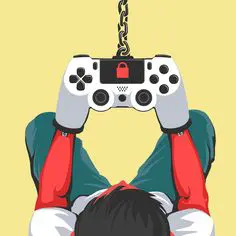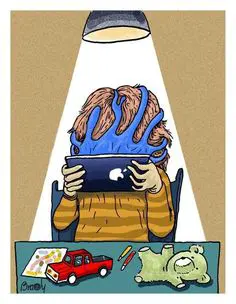
Teen Gaming Addiction Treatment: Empowering Adolescents Towards Recovery
- Admin
Gaming addiction among teenagers has become a growing concern in today's digital age, impacting their physical health, academic performance, and social well-being. However, with early intervention and appropriate treatment, teenagers can overcome gaming addiction and lead fulfilling lives. In this article, we'll explore effective treatment strategies tailored specifically for teenage gaming addiction.
Early Intervention and Assessment:
Early intervention is crucial in addressing teen gaming addiction before it escalates into more severe problems. Parents, educators, and healthcare professionals play a vital role in recognizing the signs of gaming addiction and initiating the assessment process. A comprehensive assessment involves evaluating the severity of the addiction, identifying underlying factors contributing to the problem, and determining the appropriate course of treatment.
Family-Based Therapy:
Family-based therapy is a cornerstone of treatment for teen gaming addiction, as it addresses the familial dynamics and interpersonal relationships that may contribute to the addiction. In family therapy sessions, teenagers and their families work together to improve communication, set healthy boundaries around gaming behavior, and strengthen family bonds. Family therapy provides a supportive environment for adolescents to express their concerns and receive guidance and support from their loved ones.
Cognitive-Behavioral Therapy (CBT):
Cognitive-behavioral therapy (CBT) is highly effective in treating teen gaming addiction by helping adolescents identify and challenge negative thoughts and behaviors associated with gaming. Through CBT, teenagers learn coping strategies to manage cravings, regulate emotions, and develop healthier ways of coping with stress and boredom. CBT also addresses underlying issues such as anxiety, depression, or low self-esteem that may contribute to gaming addiction.
Peer Support Groups:
Peer support groups provide teenagers with a sense of camaraderie and understanding as they navigate the challenges of gaming addiction. In peer support groups, adolescents can share their experiences, struggles, and successes with others who can relate. Peer support fosters a sense of belonging and accountability, motivating teenagers to stay committed to their recovery goals and offering practical tips and strategies for overcoming gaming addiction.
Healthy Coping Skills Development:
Teaching teenagers healthy coping skills is essential for preventing relapse and promoting long-term recovery from gaming addiction. Adolescents learn alternative activities to gaming, such as sports, hobbies, creative pursuits, and socializing with peers. By engaging in rewarding and meaningful activities, teenagers can experience a sense of fulfillment and purpose outside of gaming, reducing the urge to escape into virtual worlds.
Conclusion:
Treating teen gaming addiction requires a multifaceted approach that addresses the biological, psychological, social, and environmental factors contributing to the addiction. Through early intervention, family-based therapy, cognitive-behavioral therapy, peer support groups, and the development of healthy coping skills, teenagers can overcome gaming addiction and reclaim control over their lives. By providing adolescents with the support, guidance, and resources they need, we can empower them to build a brighter and healthier future free from the grips of gaming addiction.
